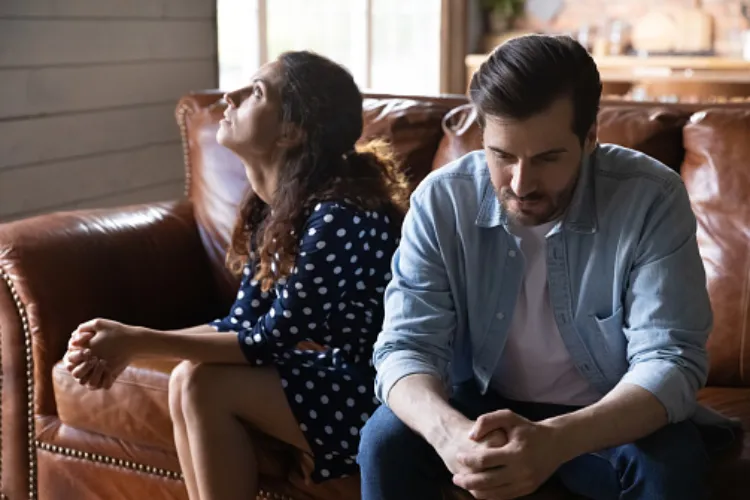Do you ever wonder that you have mixed feelings about someone? You like the person, but the same person can get on your nerves. You don’t really understand what and how you feel about them. It is difficult to make an overall judgement of that person in your eyes.
What are Ambivalent Relationships?
Every relationship contains positive and negative aspects. In a healthy, empowering relationship, the good far surpasses the bad. This is generally considered an ideal relationship. In an unhealthy and toxic relationship, the negative vastly exceeds the positive. However, such is not the case with Ambivalent relationships.
In an Ambivalent Relationship, the negatives and positives are so much at par that none exceeds the other. You have mixed feelings about the person. This individual might be critical or encouraging at different times. They might be entertaining or annoying depending on the situation. They are there for you at times and not at other times. They annoy the living tar out of you occasionally, even when you sometimes truly like and even adore them. This type of bond may exist in certain relationships such as Frenemies, Co-workers, bosses, Friends, Family, and sometimes even your Partner.
What Effect Does Ambivalent Relationships Have on Your Mental Health? Do You Want to Speak With Experts? Get in Touch With the Best Online Therapist…
Ambivalent Relationship in Children
Ambivalent attachment in adults can be traced back to childhood. There are 4 kinds of attachment patterns given by John Bowlby and Mary Ainsworth. One of them is the Secure attachment pattern. Rest three are insecure attachment styles. One of the insecure attachment patterns includes anxious ambivalent pattern. Even when the parent is around, a kid with this form of attachment would often explore minimally (when put in a new setting) and be afraid of strangers.
The anxious-ambivalent approach is a reaction to caregiving that is unpredictable in its response. McCarthy and Taylor’s study in 1999 revealed that ambivalent attachments were more likely to form in individuals who had traumatic childhood experiences. The study also discovered that individuals who had ambiguous attachments as children were more likely to have trouble establishing close relationships.
Ambivalent Attachment in Adults
Anxious Ambivalent Attachment patterns in childhood frequently develop into preoccupied attachment styles in adulthood. This pattern is manifested in the behavior in different ways. Adults with anxious or ambivalent attachment styles frequently depend on others to assist them in handling their emotions. When they do discover a relationship, they could experience strong feelings like rejection, betrayal, or rage because their partner doesn’t behave the way they think they should.
People with this attachment type frequently experience anxiety, unease, and low self-esteem. Due to their dread of having no connection at all, they would dispute with their companion since being furious feels better to them. They yearn for emotional closeness yet are concerned that others won’t want to be around them. Fear and worry over whether their partner truly loves them wear them out.
How can you fix your ambivalent attachment at home? Download Our App now.
Ambivalent Attachment in Relationships
Ambivalence in romantic relationships is real. It can be seen as ambivalence between dating couples, or it can even take a form of ambivalence in marriage. When contradictory feelings and wants towards the other person coexist in intimate relationships, it can lead to ambivalence. This makes the connection uncertain, ambiguous and unpredictable which in turn makes it difficult to know whether to stay in the relationship. This is also known as chronic relationship ambivalence wherein such an equation exists for a long while.
Ambivalent friendships are generally exhausting. This is because you can’t really trust your friend. You don’t have that faith in them to share something confidential because you can’t predict how they might react.
Whether you are struggling with your friendships or relationships, our counselors and therapists at Ganeshaspeaks.com can help you.
Ambivalent Relationship Examples
People with this attachment pattern might experience few of the things mentioned below, among many others.
- Feeling insecure in relationships
- Need for constant reassurance
- Communicating through conflicts and arguments
- Tendency to engage in clingy behaviors
- Likelihood of bringing up past instances of rejection
- Not gaining satisfaction even when comforted
- Viewing space and boundaries as a threat to relationship
- Employment of manipulation strategies to keep the partner close
- Likely to engage in public display of affection
- Tendency to play the blame game instead of taking responsibility
How to overcome Relationship Ambivalence?
Feeling ambivalent about your relationship? First step to be taken is being aware about your attachment pattern. It is necessary to realize that it’s not the only way that exists. Once this has been established, the person can identify that they’re engaging in not so desirable pattern of attachment and interaction. Further, amends can be made to rectify it.
Here are other guidelines that could help you get over the ambivalence or at least reduce it in a relationship.
- Engaging in an interaction with someone who has a secure attachment pattern (either through Psychotherapy or in a discussion with the concerned person) is the most effective way to reduce ambivalence in a relationship.
- Making sense of one’s story is one way of overcoming ambivalence. It includes writing a narrative about how one’s childhood experiences are continuing to affect them till date. Doing so can help to build a healthier attachment pattern. It can also strengthen Emotional Resilience.
- Changing the internal dialogue (self-talk) is yet another powerful way of overcoming the anxious-avoidant attachment pattern and the behavior associated with it. The way we talk to ourselves directs and defines majority of our interactions. More the positive self-talk, more the chances of developing a secure attachment with others.
If you feel ambivalent about your relationship, speak to our online wellness experts now.



